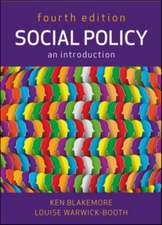Deciding to Intervene – The Reagan Doctrine and American Foreign Policy
Autor James M. Scotten Limba Engleză Paperback – 29 mai 1996
Using a comparative case study method, Scott examines the historical, intellectual, and ideological origins of the Reagan Doctrine as it was applied to Afghanistan, Angola, Cambodia, Nicaragua, Mozambique, and Ethiopia. Scott draws on many previously unavailable government documents and a wide range of primary material to show both how this policy in particular, and American foreign policy in general, emerges from the complex, shifting interactions between the White House, Congress, bureaucratic agencies, and groups and individuals from the private sector.
In evaluating the origins and consequences of the Reagan Doctrine, "Deciding to Intervene" synthesizes the lessons that can be learned from the Reagan administration's policy and places them within the broad perspective of foreign policy-making today. Scott's measured treatment of this sensitive and important topic will be welcomed by scholars in policy studies, international affairs, political science, and history, as well as by any reader with an interest in the formation of American foreign policy.
Preț: 303.11 lei
Nou
Puncte Express: 455
Preț estimativ în valută:
58.00€ • 60.68$ • 48.18£
58.00€ • 60.68$ • 48.18£
Carte tipărită la comandă
Livrare economică 02-16 aprilie
Preluare comenzi: 021 569.72.76
Specificații
ISBN-13: 9780822317890
ISBN-10: 0822317893
Pagini: 352
Dimensiuni: 150 x 250 x 15 mm
Greutate: 0.54 kg
Editura: MD – Duke University Press
ISBN-10: 0822317893
Pagini: 352
Dimensiuni: 150 x 250 x 15 mm
Greutate: 0.54 kg
Editura: MD – Duke University Press
Cuprins
Preface1. Introduction; 2. The Reagan Doctrine: Challenging the Soviet Union in the Third World; 3. Afghanistan: Consensus, Cooperation, and the Quest for "Rollback"; 4. Cambodia: Disinterest, Dual Tracks, and the Search for a Settlement; 5. Angola: Dissensus, Competing Agendas, and the Struggle over Constructive Engagement; 6. Nicaraguas: Polarization, Stalemate, and the Contra War; 7. Mozambique: Factions, Fights, and the Rejection of the Reagan Doctrine; 8. Conclusions: The Nature and Lessons of the Reagan DoctrineNotes; References; Index
Recenzii
"I know of no other book that provides such an in-depth examination of the Reagan Doctrine." James M. Lindsay, University of Iowa"This book gives a fair and accurate account of the origins, development, and consequences of the Reagan Doctrine, paying detailed attention to the varying ways in which that policy played out in Afghanistan, Cambodia, Angola, Nicaragua, and Mozambique. And it provides an excellent case study of the strange workings of the American system of government, in which disparate actors struggle to define, control, and implement policy. . . ." Foreign Affairs"Scott sheds a great deal of light on both [the] genesis and [the] operation [of the Reagan doctrine]. . . . Scotts book will be particularly valuable to anyone teaching a course in American foreign policy or Third World politics, but it is of wide general interest." Coral Bell, The International History Review
Notă biografică
Textul de pe ultima copertă
"I know of no other book that provides such an in-depth examination of the Reagan Doctrine."--James M. Lindsay, University of Iowa
Descriere
Synthesizes the lessons that can be learned from the Reagan administrations policy and places them within the broad perspective of foreign policy-making
















